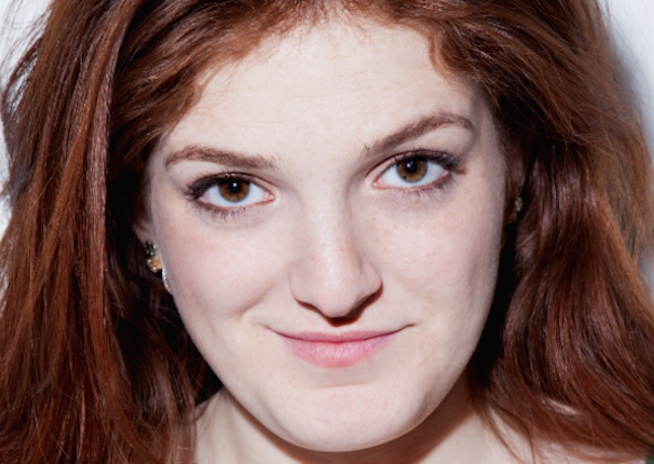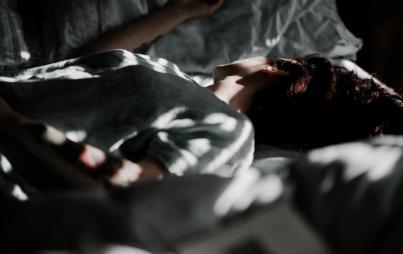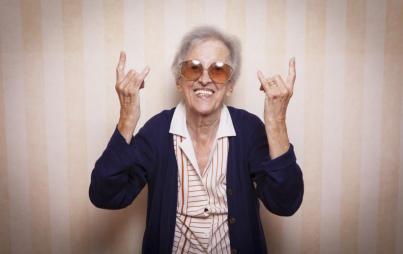
Here at Ravishly, we make mental health awareness a priority. Today's fabulous Lady We Love does the same. Ravishers, meet Jenny Jaffe! Jenny is the founder of Project UROK, an organization dedicated to providing young folks with fun and helpful content about mental health. The organization strikes a great balance between making Project UROK a pleasant Web environment, and giving this important topic the serious consideration it needs (Jenny has spoken many times about avoiding using euphemisms for “mental illness” in her work, which is super awesomely cool of her). I know you’ll love her just as much as I do!
First off, congratulations on starting such an amazing organization! What have been some of your favorite experiences since the launch?
Oh, thank you so much! Honestly, I’ve been so lucky that there are too many to name. Every time we receive a message from a viewer saying that a video they watched from Project UROK inspired them to ask for help, or tell someone how they are feeling, it is an indescribable feeling. I also have loved every opportunity to talk directly to groups of young people about Project UROK. I say "young people" because I don’t just mean teenagers, I mean kids as young as 10, who are so brave and smart and unbelievably inspiring. As I’m writing this I’m getting ready to head to San Diego to do a panel about mental health at Comic-Con, which is pretty surreal. It’s all pretty surreal, actually!
You’ve done a lot of comedy work in the past. How did that affect your approach to Project UROK?
Comedy is such an important coping mechanism. I probably say this in every interview, but I once read this quote by Stephen Colbert: “When you’re laughing, I defy you to be afraid." I got into comedy really young because it felt like a safe space. Comedians talked about the issues I was dealing with — like anxiety, depression, and OCD (thank you, Maria Bamford!) — in a way that didn’t feel all somber and scary. Comedy used to get me out of bed in the morning. I would promise myself that I had to let myself live just long enough to see the next episode of The Daily Show. I wanted to write comedy so I could give someone else that feeling. Project UROK feels like a more direct way of doing that. We’re going to start rolling out some comedy Web series in the near future. I want to help make the conversation around mental illness and mental healthcare as fun and approachable as possible.
You are a vocal feminist. How has that influenced your professional life? What about your personal life?
Aww, thank you! One thing that Sarah Hartshorne (Project UROK Vice President) and I have been talking about a lot lately is the fact that, as women, it can feel “unnatural” to be in a position of leadership. Women, and especially young women, are taught by society to apologize, to take up less space, to second-guess themselves. Leadership requires confidence and decisiveness. I also think it’s impossible to be an activist for any kind of equality without being an activist for every kind of equality. Following that logic, I couldn’t possibly advocate for mental health without being a vocal feminist as well. I believe that everyone should have equal access to mental healthcare, just as I believe that everyone should have the same rights no matter their gender, race, sexual orientation, and so on. Nothing was better for me personally, or professionally, than the moment I realized that other women were not my competition. The comedy world — and the world at large — can make you believe that there are limited spaces for women. This is a blatant lie. There’s room enough for everyone. And I got so, so very lucky with the amazing women in my life.
The content of Project UROK is uniquely video-based. What led to that decision?
Project UROK was initially conceived of as a Web series. As a 20-something comedian, making a Web series is basically the only thing I know how to do, especially since my background with CollegeHumor was basically the ultimate teen-oriented-Web-video making training. The idea for building an organization that would provide the infrastructure for these videos to be produced continually came later, and was largely influenced by the success of the It Gets Better project. It’s always been about creating content that teens and young adults are accessing anyway, instead of asking them to adapt to us. People look to YouTubers for all kinds of advice. We’re just harnessing the power of the communities already out there.
How has founding Project UROK changed how you view mental health?
As with anything, I think it’s important that every step of the way you’re able to ask yourself, “Why do I believe this? Is it really something I believe or something I think I should believe?” For example, the decision to use the term “mental illness” — I was nervous about us that phrase, since there’s a lot of stigma surrounding that phrase. Through reflection and conversations with people in my life, I’ve realized that I think it’s important to use that phrase precisely because there’s so much stigma attached to it. If it’s only ever invoked in the wake of a tragedy to explain away the behavior of a criminal, or used to dismiss someone society doesn’t find valuable, we’re going to continue to hear the phrase “mental illness” spoken in hushed, scared tones, or not at all. The key word is “illness.” It deserves to be treated like a legitimate medical issue. I talk about this a lot. But it was one of the first of my beliefs I sort of re-worked through Project UROK. Also, frankly, I’ve learned to check my privilege quite a bit. I come from a family that had the money, resources, and will to get professional help for me when I needed it. I come from a cultural background that encourages therapy. I know my voice is not needed in many conversations about mental health, so I am learning how best to amplify those that are. UROK is all about giving people a platform from which to tell their stories. I am listening and learning from these stories every day. I didn’t know what I didn’t know about just how lucky I was and continue to be.
What plans do you have for the future of the organization and yourself?
It’s hard, because I’m trying to plan for the future and take things one day at a time. Everything’s been rapidly changing with the organization. I’d like us to do more scripted content and school workshops. We have some exciting partnerships coming up that I probably can’t talk about yet! For me — I’m not sure. I’d like to get back into comedy full time one day. I’d like to write another movie. I’d like to write a book. Honestly I don’t know. A year ago if you told me what I’d be doing now I would never have believed you. I hope I continue to surprise myself.
Who is a lady you’re loving right now? Any cool new woman-led content we should know about?
There are so many brilliant, content creating ladies in my life who are too numerous to name! My sister Brooke runs a gaming blog called The Arcadeist. She’s a better writer than I’ll ever be. Sarah Hartshorne and Heidi Vanderlee are the UROK VP and publicist, respectively, and not only are they are pretty much the only reason I’m capable of doing what I’m doing, they also are hilarious and talented comedians and musicians — again, respectively. Lily Newman of Slate. Mara Wilson, obviously. The AMAZING Dior Vargas, whose people of color and mental illness photo project is just the coolest and most important. Sara Benincasa. Akilah Hughes, who I get to see at Comic-Con. Kacie Tergesen. There are too many.


![Photo credit: By Stand-Up Sucks, LLC - "I Am Comic" Directed by Jordan Brady and distributed by Monterey MediaLocated on Monterey Medias Flickr account. [1], CC BY-SA 3.0, https://commons.wikimedia.org/w/index.php?curid=14615036 Photo credit: By Stand-Up Sucks, LLC - "I Am Comic" Directed by Jordan Brady and distributed by Monterey MediaLocated on Monterey Medias Flickr account. [1], CC BY-SA 3.0, https://commons.wikimedia.org/w/index.php?curid=14615036](/sites/default/files/styles/profile/public/images/article/2019-06/1200px-Roseanne_barr.jpg?itok=icUN7jju)



